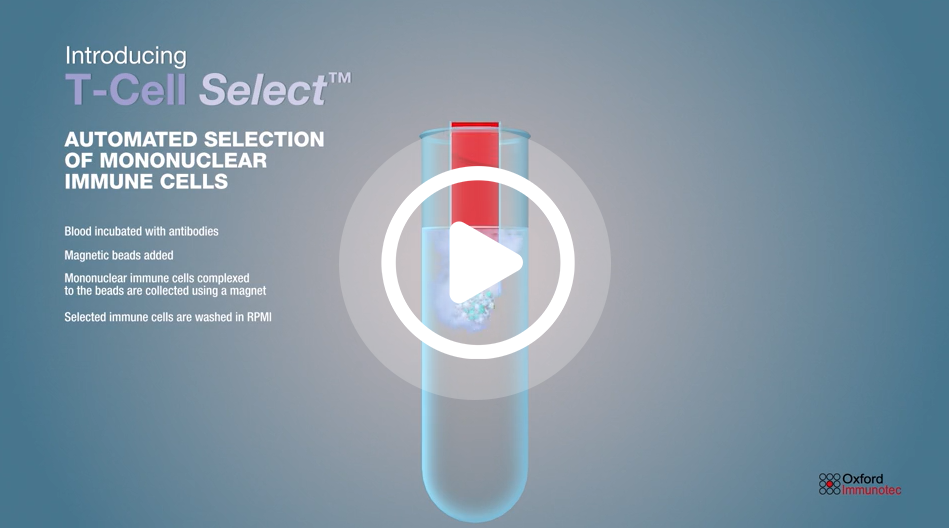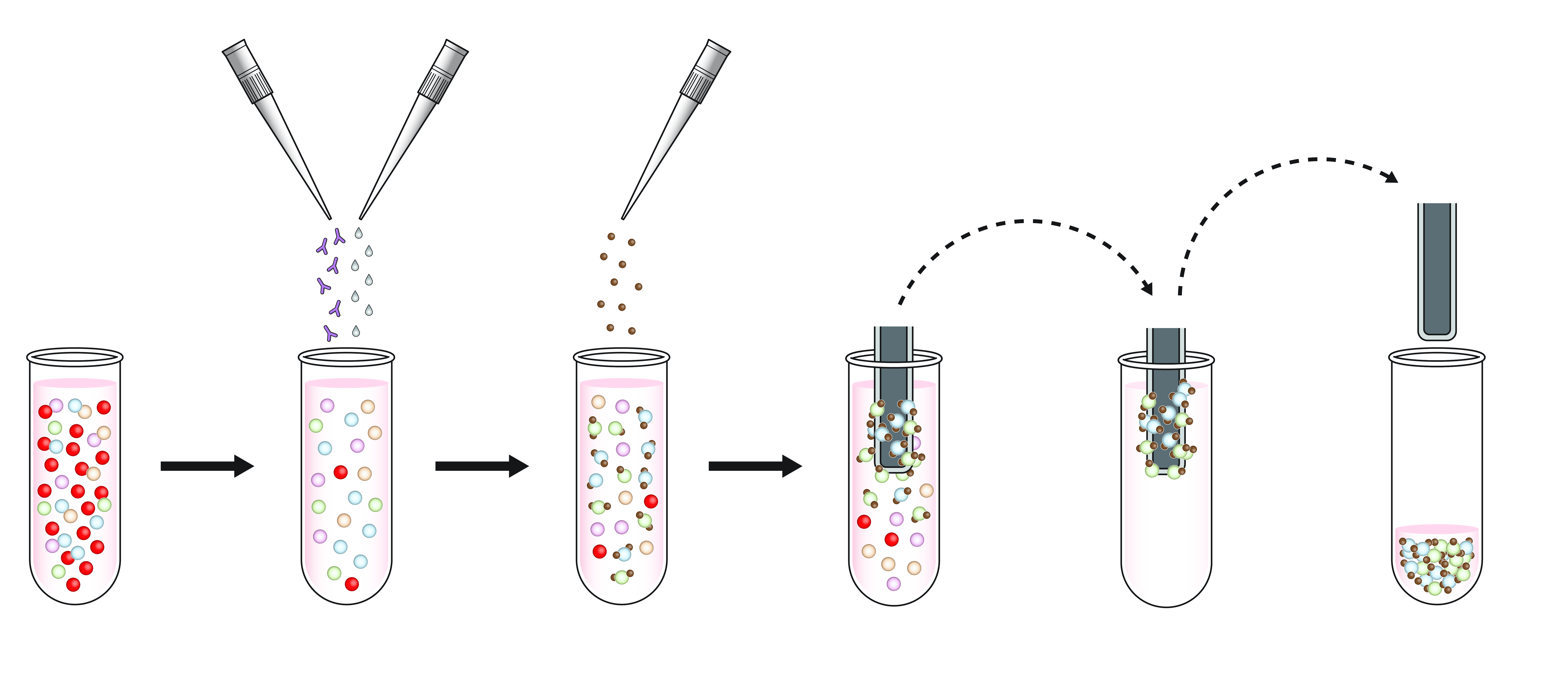T-Cell Select™
Improving T-SPOT.TB test logistics and efficiency
The new T-Cell Select reagent kit allows automated sample preparation and enables the T-SPOT.TB test to be used with blood samples stored for up to 54 hours at room temperature.

Improve logistics and laboratory flexibility
With the T-Cell Select reagent kit, samples for the T-SPOT.TB test can be processed up to 54 hours after collection. That’s over 2 full days from venepuncture until the sample needs to be processed in the laboratory. Samples are shipped at room temperature so there’s no worrying about how to keep them cold. No pre-treatment, specialized tubes, or sample manipulation are required either.
Increased sample stability to 54 hours allows you to:
- Ship samples from a greater distance with confidence, expanding the laboratory’s reach
- Store late arriving samples overnight to begin processing them on the following day
- Have a more flexible workflow with more options for batching samples
Maximise laboratory efficiency
Sample processing for the T-SPOT.TB test can also now be automated for the first time. The T-Cell Select kit contains all necessary reagents for isolating mononuclear immune cells simply and easily via your laboratory’s magnetic bead-based processing system.
The automation of sample preparation allows you to:
- Free up technicians for other tasks due to the simplified workflow and reduced hands-on time
- Increase sample throughput without increasing the number of technicians needed
- Maintain user safety
The T-Cell Select reagent uses a magnetic bead-based system to isolate the cells using positive selection. This provides exceptional cell purity without negatively impacting T cell function or the superior clinical performance of the T-SPOT.TB test.
How T-Cell Select Works

- Begin with whole blood sample
- Buffer and antibodies are added. Antibodies bind to mononuclear immune cells
- Bead reagent added. Beads form antibody-mediated complexes with the mononuclear immune cells
- Magnet is applied to sample to attract bead-complexed cells. Magnet is then removed from sample, extracting the mononuclear immune cells
- Mononuclear immune cells are washed whilst remaining attached to the magnet
- Magnet is removed and mononuclear cells are resuspended in a new tube